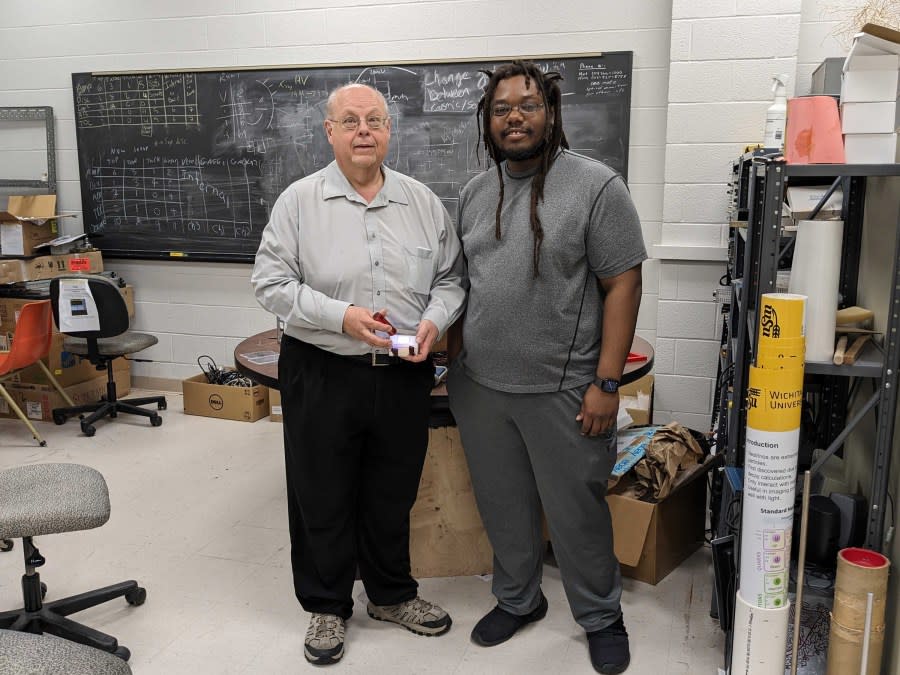WSU professor and student receive NASA grant

WICHITA, Kan. (KSNW) — Manned missions in outer space pose many dangers.
One of the most significant is the dangers posed by cosmic and solar radiation. Exposure to galactic cosmic rays or solar particles by astronauts can put them at a lifetime risk of developing various cancers and degenerative diseases.
One of the ways to help reduce exposure is to know when and where it is happening. To do this, scientists use different types of detectors to detect each type of radiation.
An ionized radiation detector can detect dangerous charged particles, a gamma detector for x-ray and gamma radiation, and a neutron detector. The problem is these are 3 separate devices that are also big and bulky.
NASA hopes Dr. Nick Solomey, professor of physics, and graduate student Tyler Nolan in the Master of Science in Physics can help solve that problem. They are receiving a grant of $133,342 to help develop a smaller and cheaper detector that can detect all types of harmful radiation.
2,400 students to graduate from WSU on Saturday
“Every time you put something into space, it’s $10,000 per pound in fuel,” says Dr. Solomey in a news release. “So if you’re putting three bulky things up, and you make it into one, that’s three times less mass and three times less fuel to go up.”
Computer models have shown promise, which led to Solomey receiving a grant to develop and test a device that could one day be a part of future manned missions to the moon and beyond. Either way, Nolan says he looks forward to whatever their work discovers.
“Regardless of what you do in science, whether it fails or succeeds, there’s always a lesson that you learn,” says Nolan.
This project is just one of several projects Dr. Solomey is currently working on with his students. In 2021, he and his team were selected to develop a space-based neutrino detector, and he and another student recently completed a feasibility study on a theoretical solar sunshade.
The grant from NASA is part of $1.5 million in grants for projects to develop technology that will play a key role in future missions to the moon and beyond.
For the latest news, weather, sports, and streaming video, head to KSN-TV.

